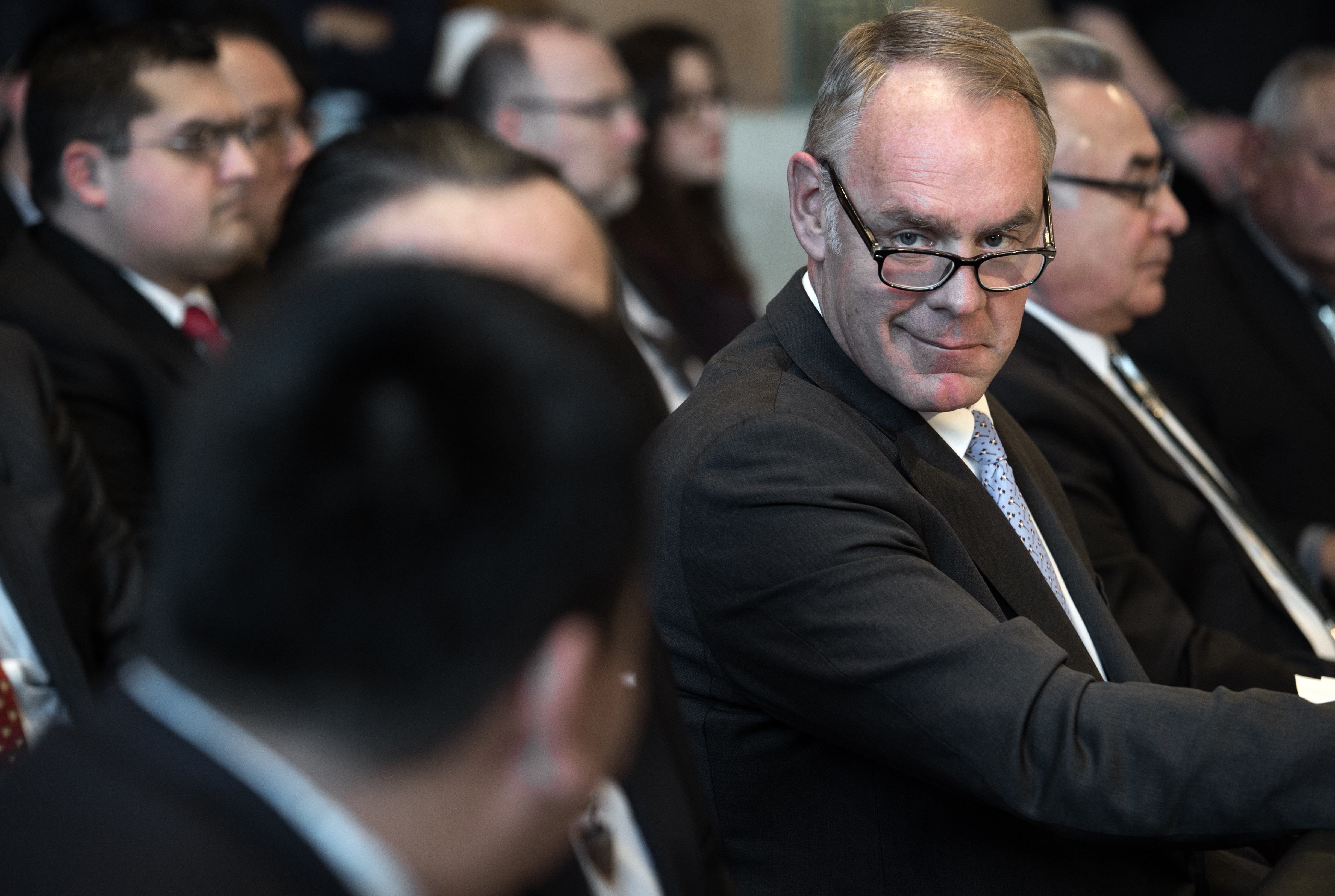Interior Secretary Ryan Zinke has spent his week traveling through a series of tropical islands in the Pacific Ocean, part of an effort meant to strengthen strategic and security-based alliances.
The trip coincides with an urgent request from Pacific leaders pleading for the United States to rejoin the Paris climate agreement — but it appears Zinke has so far avoided any mention of climate change throughout his visit to one of the world’s most vulnerable areas.
The top Interior official headlined the U.S. delegation to the Pacific Islands Forum (PIF) in Nauru this week, which kicked off on Monday and wound down on Thursday. The forum brings area leaders and partners from 18 countries and a number of observer states together annually to address the social and economic state of the region. Countries represented range in size, from tiny Niue, which has a population of around 1,600, to the continent island nation of Australia, home to nearly 25 million people.
U.S. interest in the forum is largely over security concerns — North Korea’s nuclear ambitions, and the general economic power in the area of various nations, have drawn American scrutiny. But the chief topic of discussion at this year’s PIF was climate change, largely considered the biggest threat to much of the region.
Sea-level rise, beach erosion, and increasingly powerful and frequent natural disasters exacerbated by warming global temperatures have made life on many Pacific islands unsustainable. That crisis is weighing on PIF members. Leaders of low-lying island nations like Tuvalu and Kiribati have called repeatedly for global action on climate change.
On Thursday, PIF members reiterated that plea and begged the United States to return to the Paris climate agreement, which President Donald Trump has said he will withdraw from.
“Climate change presents the single greatest threat to the livelihood, security and well-being of Pacific people,” PIF leaders said in a unanimous communique, although some later accused Australia of watering down language. Following Trump’s lead, Australia’s conservative government has increasingly backed away from its Paris commitments.
“The aspiration is for the U.S. to be in the Paris Agreement again because we cannot have comprehensive robust emission reduction unless the biggest emitter of greenhouse gas is there in the process, we cannot leave the U.S. out,” Tuvalu Prime Minister Enele Sopoaga echoed at a news conference.
That call doesn’t seem to have resonated with U.S. leadership, least of all Zinke, who spent Friday in the U.S. territory of Guam. As publishing time, the Interior Department has released no statements relating to the communique. The agency had also not responded to requests for comment from ThinkProgress.
In addition to Nauru and Guam, Zinke’s schedule also includes stops in American Samoa and the Northern Mariana Islands, which are under U.S. jurisdiction. Samoa, Zinke’s last stop, is represented by Del. Amata Coleman Radewagen (R), a member of the Climate Solutions Caucus who has a mixed record on climate issues despite her island’s precarious position.
Aware of the official’s trip to the region, a number of scientists and environmental advocates pointed to the visit as an opportunity to shift Zinke’s current perspective on climate issues. The Interior secretary has repeatedly downplayed the role of humans in warming temperatures and increasingly destructive natural disasters, while overseeing the reduction of national parks and monuments, and opening those areas up to fossil fuel development and exploration.
“As the head of the U.S. delegation at the Pacific Islands Forum, Zinke must respect the lives and livelihoods of Pacific Islanders by promising to address climate change and its consequences head-on,” wrote Joel Clement, a senior fellow with the Center for Science and Democracy. Clement previously worked for the Interior Department for seven years before resigning over objections to the Trump administration’s approach to climate change and science.
And if social media is any indicator, such advice went unheeded. Zinke’s official Twitter account has featured images from meetings with a number of island leaders, as well as his arrival in Guam. But the account offered no acknowledgement of the climate communique released Thursday by PIF leaders, or of the climate issues many raised more broadly during the forum.
Instead, the secretary tweeted approvingly after the Bureau of Land Management’s (BLM) third-quarter oil and gas lease sale in New Mexico broke new records on Thursday.
“This is what we call #EnergyDominance in the [Trump administration],” Zinke wrote in praise of the fossil fuel milestone.


